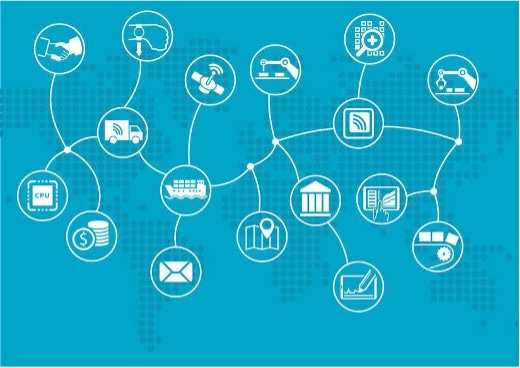In today's data-driven world, the proliferation of digital information has brought about unprecedented opportunities for innovation, growth, and social progress. However, along with these opportunities come significant challenges, particularly in the form of data fear and bias. As we increasingly rely on data to make decisions and shape our lives, it is crucial that we confront these issues head-on and develop strategies for responsible and ethical data governance.
The Fear of Data.
The fear of data stems from a range of concerns, including privacy, security, misuse, and the potential for harm. In an era of ubiquitous data collection and opaque data practices, individuals may feel a loss of control over their personal information and a sense of vulnerability to data breaches, surveillance, or exploitation.
The complex and often inscrutable nature of data systems can further fuel these fears, as people struggle to understand how their data is being used and what the consequences might be.
These fears are not unfounded. High-profile data breaches, revelations of government surveillance programs, and instances of data being used for discriminatory or manipulative purposes have all contributed to a growing sense of unease around data practices. As a society, we are grappling with the realization that data is not just a neutral resource, but a powerful tool that can be wielded for good or ill.
The Challenge of Data Bias Closely intertwined with the fear of data is the issue of data bias.
Data bias refers to systematic errors or distortions in data that can lead to inaccurate, unfair, or discriminatory outcomes. Bias can enter the data pipeline at various stages, from the initial selection and collection of data to the way it is processed, analyzed, and used to make decisions.
Some common types of data bias include selection bias, where the data used is not representative of the larger population; measurement bias, where the data collection process itself introduces distortions; and historical bias, where data reflects and perpetuates past inequities or discriminatory practices.
The consequences of data bias can be severe, particularly for marginalized or disadvantaged groups. When biased data is used to make decisions in areas like hiring, lending, healthcare, or criminal justice, it can lead to discriminatory outcomes that reinforce and amplify existing social inequities. This not only harms individuals and communities, but also erodes trust in data-driven systems and decision-making processes. Towards Responsible Data Governance Addressing the challenges of data fear and bias requires a comprehensive and proactive approach to data governance. This means developing policies, practices, and technologies that prioritize transparency, accountability, and fairness in data collection, use, and sharing.
One key aspect of responsible data governance is strengthening privacy protections. This includes establishing clear legal frameworks that give individuals control over their personal data, limit data collection to what is necessary and proportionate, and provide robust security measures to prevent unauthorized access or misuse. Techniques like data minimization, anonymization, and encryption can help to safeguard sensitive information and reduce the risks of data breaches or abuse.
Another critical element is promoting algorithmic transparency and accountability. As more decisions are being made by automated systems and machine learning algorithms, it is essential that these systems are open to scrutiny and that their decision-making processes are explainable and auditable. Regular testing for bias, as well as mechanisms for human oversight and intervention, can help to identify and mitigate discriminatory outcomes.
Understanding and building trust.
Responsible data governance means striving for inclusive and representative data. This requires proactive efforts to engage and involve diverse communities in data collection and use, as well as using techniques like oversampling and weighting to ensure that datasets reflect the broader population. By promoting diversity and inclusion in data practices, we can work towards more equitable and culturally responsive outcomes.
Building Trust through Collaboration and Empowerment Ultimately, the goal of responsible data governance should be to foster trust and collaboration around data innovation. This means moving beyond top-down, technocratic approaches to data management and towards more participatory and democratic models that empower individuals and communities to have a say in how their data is used. This includes advancing the field of fair machine learning to develop algorithms that are unbiased and non-discriminatory, as well as exploring new technical solutions for privacy preservation and secure data sharing.
Summary.
Ultimately, the key is to recognize that data is not just a technical issue, but a deeply social and political one that requires a collective and participatory approach. By working together to build a data ecosystem that is trustworthy, accountable, and equitable, we can unlock the full potential of data-driven innovation to solve problems, improve lives, and create a more just and prosperous society for all.
Data fear arises from concerns about privacy, security, misuse, and potential harm.
Data bias refers to systematic errors or distortions that can lead to unfair or discriminatory outcomes.
Responsible data governance requires transparency, accountability, and fairness in data practices.
Strengthening privacy protections and promoting algorithmic transparency are crucial for addressing data fear and bias.
Striving for inclusive and representative data helps promote equity and mitigate bias.
Building trust through participatory data governance models, such as data trusts or cooperatives, can empower individuals and communities.
Investing in data literacy and public engagement fosters a more informed and empowered citizenry.
Interdisciplinary collaboration and research are essential for developing holistic, context-aware solutions to data challenges.
In conclusion, addressing the challenges of data fear and bias requires a multifaceted approach that prioritizes responsible data governance, public engagement, and collaborative innovation.
By working together to establish clear guidelines, empower individuals and communities, and promote ongoing research and dialogue, we can harness the power of data to drive positive change while mitigating risks and unintended consequences. As we navigate the complexities of the digital age, it is crucial to remain committed to building a data ecosystem that upholds the values of trust, accountability, and equity, ultimately paving the way for a more inclusive and prosperous future for all.



